As Unpopular Tariffs Threaten Millions of Jobs, Kevin Cramer Stands By Trade War
New reports spell trouble for North Dakota industries and pro-tariff pols like Cramer
(BISMARCK, ND) — Another day, another example of how unpopular and dangerous Kevin Cramer’s support of the Trump administration’s trade war is — and how it spells trouble for opportunistic pro-tariff politicians like him.
In a U.S. Chamber of Commerce memo obtained by the Wall Street Journal, experts estimate that as many as 2.6 million jobs could disappear if the Administration continues down this path. We have already seen retaliations promised by China, Mexico, Canada and the European Union, and in a state that depends heavily on exports, North Dakota’s industries are extremely vulnerable.
But it’s not just the economists and business experts who are sounding alarm bells. Increasingly, the American people are speaking out against the threat that these misguided policies pose to their bottom line through loss of jobs, increased taxes, and higher prices. In a new poll published by Politico, 70 percent of voters would like to see the administration focus on negotiating trade deals that open up new markets for American goods.
So, tariffs are bad for the economy, may cost millions of jobs, will hit North Dakota hard, and are extremely unpopular. Why is Kevin Cramer still supporting them?
WSJ: Trump’s Trade Policies Threaten Millions of Jobs, U.S. Chamber of Commerce Says
-
The Trump administration’s trade policies will hamstring the U.S.’s robust economic growth and threaten as many as 2.6 million jobs, according to a memo from the U.S. Chamber of Commerce’s top official on Thursday.
-
The memo—from Tom Donohue, the chamber’s chief executive, to his board of directors—followed news Thursday morning that President Donald Trump’s administration would make good on threats to apply tariffs to steel and aluminum imports from neighbors and allies, including Canada, Mexico and the European Union.
-
In the memo, Mr. Donohue cited a number of the administration’s trade initiatives that he wrote would hurt growth and employment. Should the president, for example, pull out of the North American Free Trade Agreement, as Mr. Trump has threatened to do many times, it would cause a net loss of 1.8 million jobs, he wrote. Efforts to reach a deal and enact a new version of Nafta this year have stalled.
-
Meanwhile, the administration has threatened tariffs on autos and auto parts, on steel and aluminum, and on intermediary goods from China that are used in U.S. supply chains, all of which would contribute to job loss and an economic slowdown, Mr. Donohue wrote in the memo, which was reviewed by The Wall Street Journal.
-
Canada, Mexico and the European Union all threatened retaliation against the U.S. after Mr. Trump’s administration declined Thursday to renew a tariff exemption that prevented Canada, Mexico and the EU from facing broad duties on steel and aluminum shipments to the U.S. Those products will face tariffs as of Friday.
-
“The current approach—and the obvious retaliation that will occur in response—poses a serious risk of raising barriers and reducing Americans’ access to vital global markets,” Mr. Donohue wrote in the memo. “Our businesses will lose customers, workers will lose jobs, and American consumers will lose family income through higher taxes and higher prices.”
Politico: Poll: Voters want trade deals, not tariffs
-
A huge majority of U.S. voters would prefer that President Donald Trump focus more on negotiating new trade agreements rather than imposing tariffs on foreign imports, according to a new POLITICO/Morning Consult poll released Thursday.
-
The poll of nearly 2,000 registered voters found that 70 percent of them would prefer the Trump administration focus more on “negotiating trade agreements to open new markets to sell American-made products and goods.” Only 14 percent, in contrast, answered that they would prefer the administration focus on “imposing tariffs or taxes on foreign products to slow down their sales in the United States.”
-
When voters were asked which they would prefer Congress focused on, the numbers were similar: 67 percent wanted lawmakers to focus on negotiating new deals, while 16 percent said they would prefer they focus on imposing tariffs.

